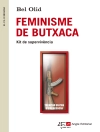This book explores the organization and divisions of labour of domestic and care work in modern France and in so doing, reveals some of the drivers of and obstacles to change in the relationship between gender, the family, and the French state. The book finds that both the policies and social norms that structure how domestic and care work is carried out and by whom in contemporary France have been influenced by historical legacies dating back to the Revolution such as French Republicanism and pronatalism, and more recent political currents such as the self-management movement and materialist feminism. Chapter 1 sets out the analytical framework for the book, while Chapter 2 explores the historical legacies that help shape contemporary domestic and care work in France. Chapters 3, 4, and 5 focus on the specific activities of parental and childcare work, long-term care for adults, and domestic work in the contemporary period. Chapter 6 discusses the effects of the COVID-19 restrictions on domestic and care work, and Chapter 7 concludes the discussion.
สารบัญ
1. Introduction.- 2. Domestic and Care Work in France: Legacies of the Twentieth Century.- 3. Parenting Work and Childcare in Contemporary France.- 4. Long-Term Care for Adults in Contemporary France.- 5. Domestic Work in Contemporary France.- 6. Domestic and Care Work in France in COVID Times.- 7. Domestic and Care Work in France: Gender, Family and the State.
เกี่ยวกับผู้แต่ง
Jan Windebank is Professor of French and European Societies at the University of Sheffield, UK.












